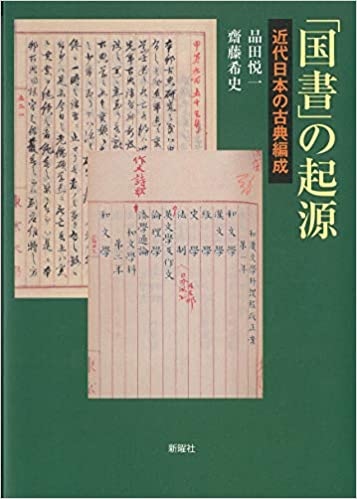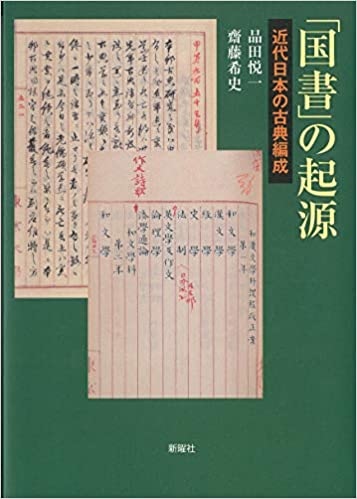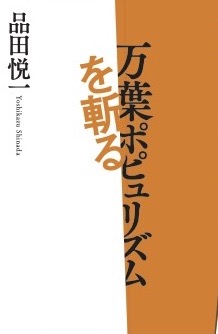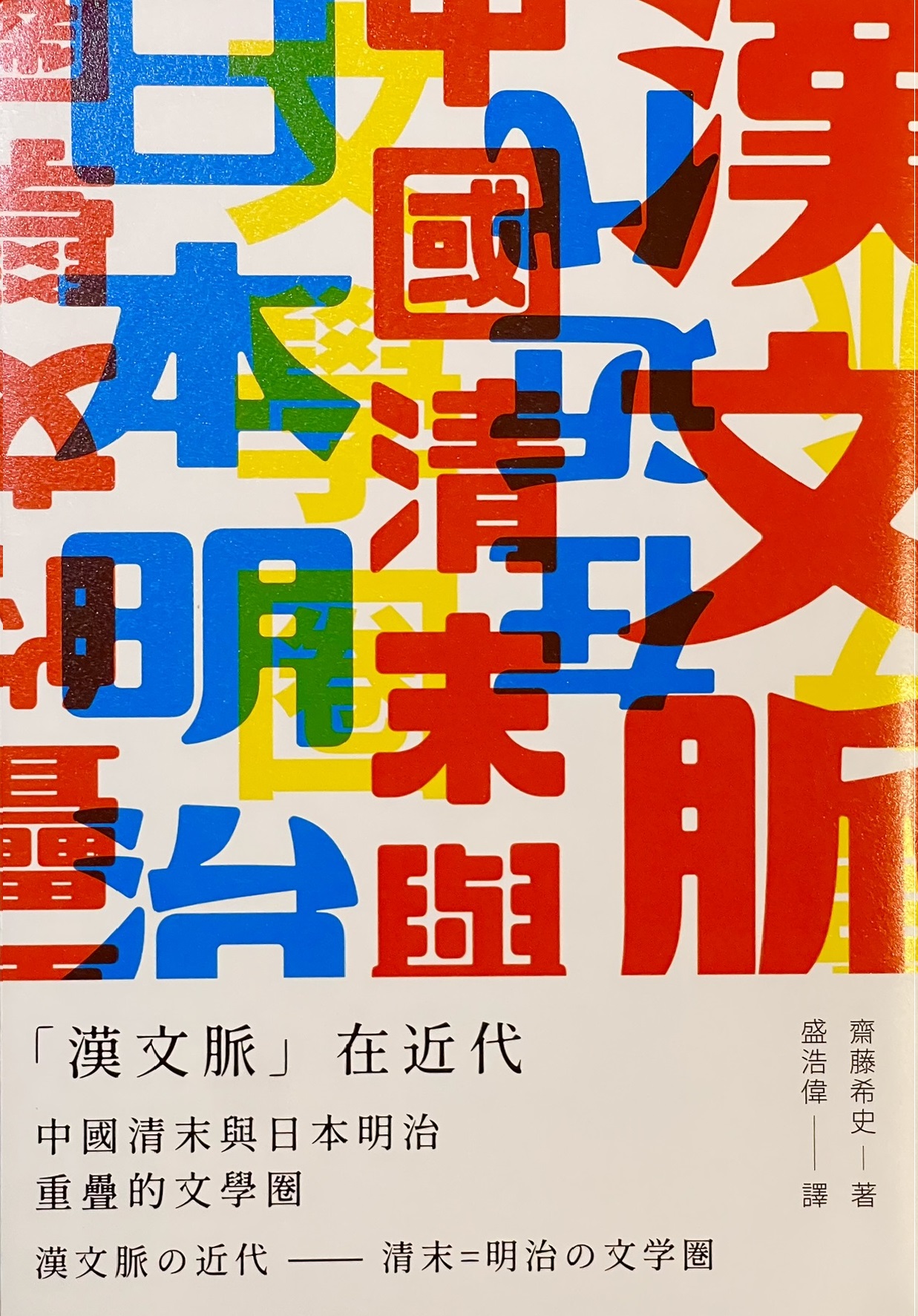
Title
Kokusho no Kigen (The Origin of “National Writings” – The Formation of the Classics in Modern Japan)
Size
240 pages, A5 format
Language
Japanese
Released
September 06, 2019
ISBN
9784788516441
Published by
Shinyosha
Book Info
See Book Availability at Library
Japanese Page
The impetus for this project, “The Origin of “National Writings” – The Formation of the Classics in Modern Japan”, came to Shinada Yoshikazu—co-author of this book—upon hearing the discourse of Prime Minister Abe who stated that the Man'yōshū was a kokusho (a great work of national literature) at the time when the new era name of Reiwa was decided upon.
I argue in this book, that “kokusho” should not necessarily be adopted as a keyword. In fact, what should be emphasized are the writings that former Prime Minister Abe did not include in the category “kokusho”—the “Chinese Classics” that are studied as part of Kangaku (the study of Chinese classics) and also the kanbun(the classical form of Chinese language used in Japanese literature)that is the basis for these classics, as well as the “modern texts” that were born from them.
However, if we view “kokusho” as the first group to be distinguished from among the large number of kanseki, thinking about kangaku and kanbun as they occur in a modern context can help to illuminate the origin of “Kokusho”. Furthermore, if we accept that sentences using the phrase Reiwa are examples of kanbun and also that the edicts of the Meiji Emperor—who ruled the nation—are based on classical Chinese script, it is evident that the word “kokusho” has been fruitlessly manipulated in the 21st century—or perhaps we should say that confusion surrounds it? Why are we still bound to the view of “the nation” and the “Han” (referring to an ethnic group of people native to China) as opposing concepts, with the idea of establishing a “nation” in which the “Han” have been exterminated?
The prototypes for this book are surveys of documents and research into the course in classical literature held in the University of Tokyo’s Faculty of Letters from the 15th to the 21st years of Meiji (1882–1888). One-third of it is a collection of documents that were replicated between the University of Tokyo Archives and the Ministry of Education, Science, Sports and Culture and which were originally created as reports for an intra-university project. The course in classical literature, was not previously ignored by other researchers. However, it can be argued that the motivation to establish the course was related to the movement to devise the Imperial Constitution. This viewpoint is something that was born from the research process.
In short, the constitution is a written statement of the nation’s philosophy and structure. At that time, the University of Tokyo primarily taught in English, but the Constitution was not written in English. It was necessary that the “National Polity” be written in Japanese. However, in the early modern period, the literary language that would become the standard was still in the process of being formulated. Scholars of classical Japanese and Chinese literature, while bitter enemies, were forced to work together, creating a curriculum to teach people about classic Japanese and Chinese literature as a resource of national writing, supporting the establishment of a national polity from the standpoint of literature. Incidentally, the translation of western concepts into classical Chinese may also be considered an extension of classical literature as a form of writing resource in modern times.
It is sometimes argued that the field of liberal arts, particularly the Faculty of Letters, is useless. It is sometimes said that classical literature does neither harm nor good. However, looking back on history, we find that the opposite is true. Whether it does harm or good, it is, in fact, extremely useful. This book offers a glimpse of that.
(Written by SAITO Mareshi, Professor, Graduate School of Humanities and Sociology / 2021)



 Find a book
Find a book




